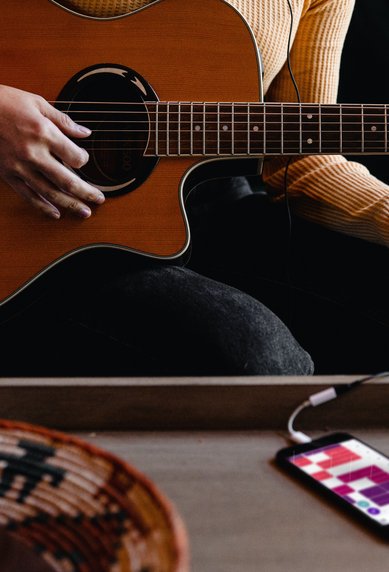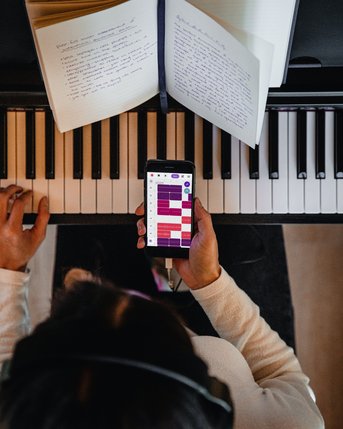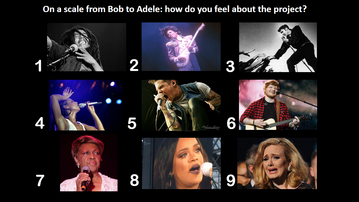
B.A. Audio Design (SOPA) meets B.A. Music Composition and Technology (UCA)
Over a period of 15 weeks, students from the British University for the Creative Arts (UCA) worked together with students from the SRH Berlin School of Popular Arts (SOPA) towards a conceptual music album, designed to be pitched to UCA M.A. Filmmaking students in May 2021.
The international interdisciplinary project was achieved remotely between two courses: B.A. Audio Design and B.A. Music Composition and Technology. Students were presented with an unfamiliar music production tool, the online platform Soundtrap, and were challenged to deepen their specific knowledge and skills related to the competencies in composing, arranging, writing, and producing, as well as aligning different cultures and styles. The overarching goal is to initiate a creative network beyond national borders, strengthened by ongoing projects.
Course Leader at SRH Berlin School of Popular Arts: Laura Lee
Course Leader at University for the Creative Arts: James Armstrong


"Thank you for this opportunity, it has driven me to create something I would never have been able to achieve on my own and I feel very fortunate to have been involved".
Project Outcomes
Project Evaluation
To evaluate the courses, online surveys and focus groups were conducted with students from both parties (SRH Berlin and UCA). With regard to future courses, students' experiences, acquisition of competences and satisfaction were investigated in order to identify concrete possibilities for improvement and to study the impact of such collaborations.
Lessons Learned
- Learning Objectives: To prevent misunderstandings, the course objectives should be explained in detail. Especially in (inter-)national collaborations, care should be taken to ensure that there is an alignment of project briefs between the partner universities. Otherwise, frustration and confusion among the students could arise.
- Communication: Especially in international projects, communication in the groups should be given high priority (e. g. pointing out that there are different communication styles in teams, drawing attention to the fact that language can be a barrier).
- Groups: Group activities should require a minimum of interdependent collaboration, otherwise students may perceive them as an unnecessary and additional burden. Accordingly, task assignments must support social and collaborative aspects.
- Time management: Students often wish for more time in groups to learn from each other. Especially when the group work is the focus of the course, a balance should be found between joint presentation sessions and phases of group work.
- Motivation: At the beginning of the project, it is important to emphasize the added value of the course for the students. This has a motivating effect and offers incentives to get involved in the course, which facilitates the beginning of group work.
